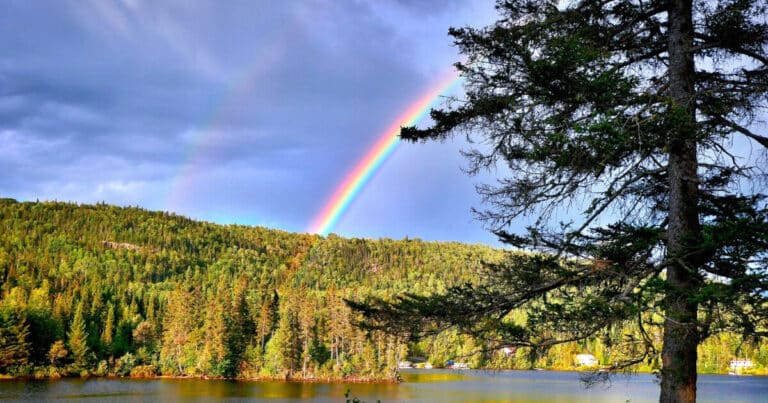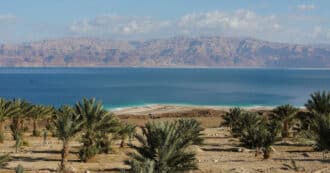By Sydney Cohen – The word ecology is derived from the Greek “oikos” which means home. Ecology, then, is the study of how organisms interact with each other and their environment in order to maintain a stable system. The central idea behind ecology is that everything living on earth exists together, not as separate entities fighting for survival but as a whole – a complex ecosystem – that must be understood in order to survive.
The Difference Between Ecology and Environmental Studies
Both fields play a role in educating individuals about the importance of protecting and preserving our planet. However, environmental studies is a far broader field encompassing scientists, geographers, assessors, analysts, and many other professionals. Ecology is a more specialized and focused field of study.
Environment
Environmental science is an interdisciplinary field focused on humans’ impact on the environment. Environmental science seeks to protect both human beings and the environment from negative factors such as climate change and pollution, and other things.
Ecology
Ecology seeks to understand how ecosystems develop, how humans can have a negative impact on those ecosystems. Ecology is the study of the relationships between living organisms: humans and animals, animals and plants, plants and organisms.
An Ecosystem in Ecology
An ecosystem is a geographic area that includes organisms and nonliving parts of their physical environment. An ecosystem can be a wilderness area, a suburban lake or forest, or a heavily used area such as a city. The more natural an ecosystem is, the more ecosystem services it provides. These include cleansing the water (wetlands and marshes) and air (forests) and pollinating crops and other important plants (insects, birds, bats), and absorbing and detoxifying pollutants (soils and plants). An ecosystem has important ecological services, such as pollination of crops, pollination, air, and absorption and detoxification of pollutants.
Who Researches Ecology?
Ecologists study relationships among organisms and habitats. Ecologists also study complex interactions between plants, animals, and other communities found in ecosystems all over the world. For example, they study microbes in soil in a forest, or on the ocean bed or in a tropical rain forest in order to understand ecosystems and their organisms’ relationships with each other. Both scientists and ecologists use principles of scientific analysis. Ecologists and environmental scientists interact with the environments they study by collecting data, analyzing information, organizing evidence, and writing reports about their findings. They observe air and water quality, preservation of biodiversity, accessibility to resources, among other subjects.
The Role of Ecology in Our Lives
Ecological specialties include marine, vegetation, and statistical ecology. This information can help us improve our environment and manage our natural resources. Ecological knowledge has positively influenced our lives, as well as our own human health.
Ecology Research
A new report on the ecology of the Pacific Northwest was published by researchers from the University of North Texas, Georgia Southern University, and the Cary Institute of Ecosystem Studies. It presents new research, that identifies a hybrid of two species of sand-stabilizing beach-grasses introduced to the Pacific Northwest starting in the early 1900s. In the study, it was stated that this new understanding of “the ecological and population genetic consequences of this novel hybridization event is of the utmost importance in a system where any change in dominant beach-grass species can have large effects on both biodiversity management and coastal protection.” This is just one example of the importance of ecological studies, in understanding, maintaining, and restoring our ecosystems that face increasing threats from human activities, climate change, and declining biodiversity.
Non-Native Species Disrupt The Ecology
Introduced species, not originally from a given area, compete with plants, animals, and microbes of an existing ecosystem, damaging the environment in the process. The gypsy moth, for example, a native of Asia, wreaks havoc on forest lands in other continents by defoliating or eating the leaves off of trees. Ecologists were able to devise minimally toxic approaches to control gypsy moths’ numbers by targeting vulnerable stages in their life cycle in order to control numbers of their numbers. This is another example of the many important uses of knowledge obtained through ecological studies.
A Biodiverse Ecology
Ecology provides the essential basis for nature conservation. Maintaining a mosaic of habitats ensures the survival of species. They key for a species to survive is that we do not harm its habitat. For example, as soon as we destroy a forest, an ocean or a desert we eliminate all the living creatures living within it. That is we alter the biodiversity that exists in a specific ecological system.
Agroecology
Agroecology provides an interdisciplinary framework with which to study the activity of agriculture. The term agroecologist can be used in multiple ways, as a science, as a movement, and as a practice. Broadly stated, it is the study of the role of agriculture in the world in which agriculture does not exist as an isolated entity but as part of an ecology of contexts.
Ecology and Environment from Biblical Sources
The bible teaches us the importance of conserving habitats and biodiversity, and particularly preserving and restoring our relationship to the earth. This is described in greater detail in Eco Bible: Volume One: An Ecological Commentary on Genesis and Exodus: Genesis 23:13 – “And [Abraham] spoke to Ephron in the hearing of the people of the land, saying, ‘If only you would hear me out! Let me pay the price of the land; accept it from me, that I may bury my dead there.'”
Rabbi Matis Weinberg interprets this verse, understanding that “it is the underlying relationship with the earth that needs to be restored,” and that, “if we lose sight of that connection we lose all connection to ourselves and to life.”
This emphasizes the need for humans to reconnect with the earth, ultimately restoring this relationship, and working toward preserving our ecosystems as we would preserve ourselves. Let us work together, starting now! Together, we can make the world a more sustainable place for generations to come. The effects of climate change are becoming increasingly evident and as population growth continues apace, it will be crucial that we address these issues with an eye towards sustainability in order to preserve our ecosystems.
Act NOW to Protect Ecology and Improve Our Environment!
With your help and support today, let’s start working towards global ecological sustainability by implementing policies that reduce greenhouse gas emissions; taking care not to overexploit natural resources; utilizing renewable energy sources; reducing water consumption through smarter irrigation practices as well as optimizing agricultural production using organic farming principles.
We must make a global effort, including populations all around the world, to work towards future ecological sustainability. Let’s work together to make the world a more sustainable place, for generations to come!
* Featured image source










